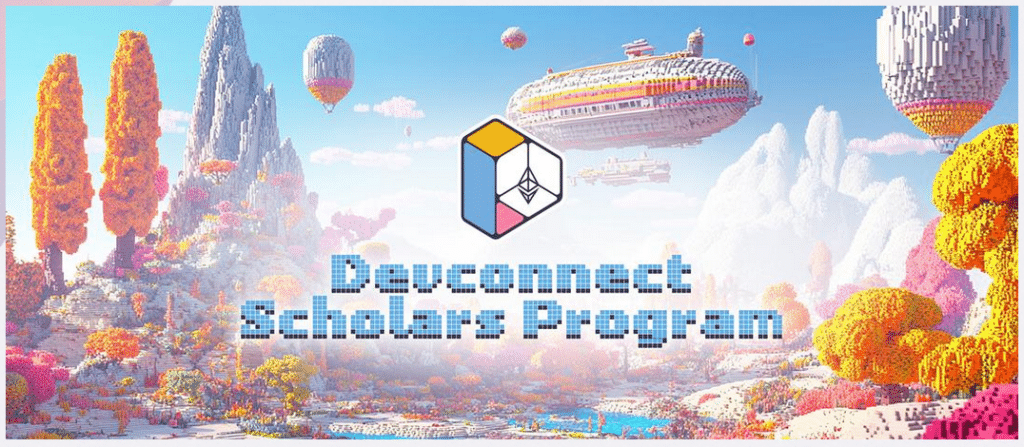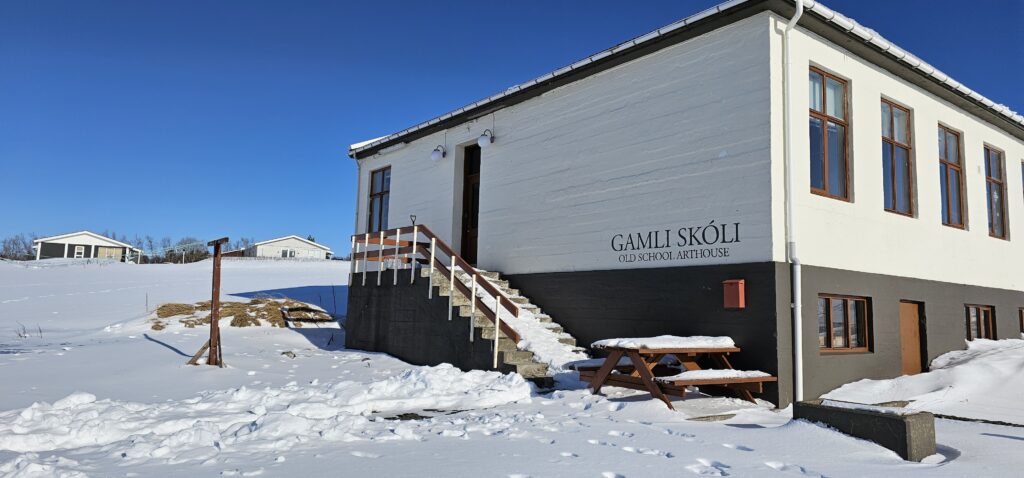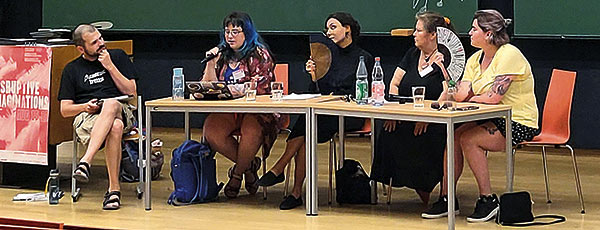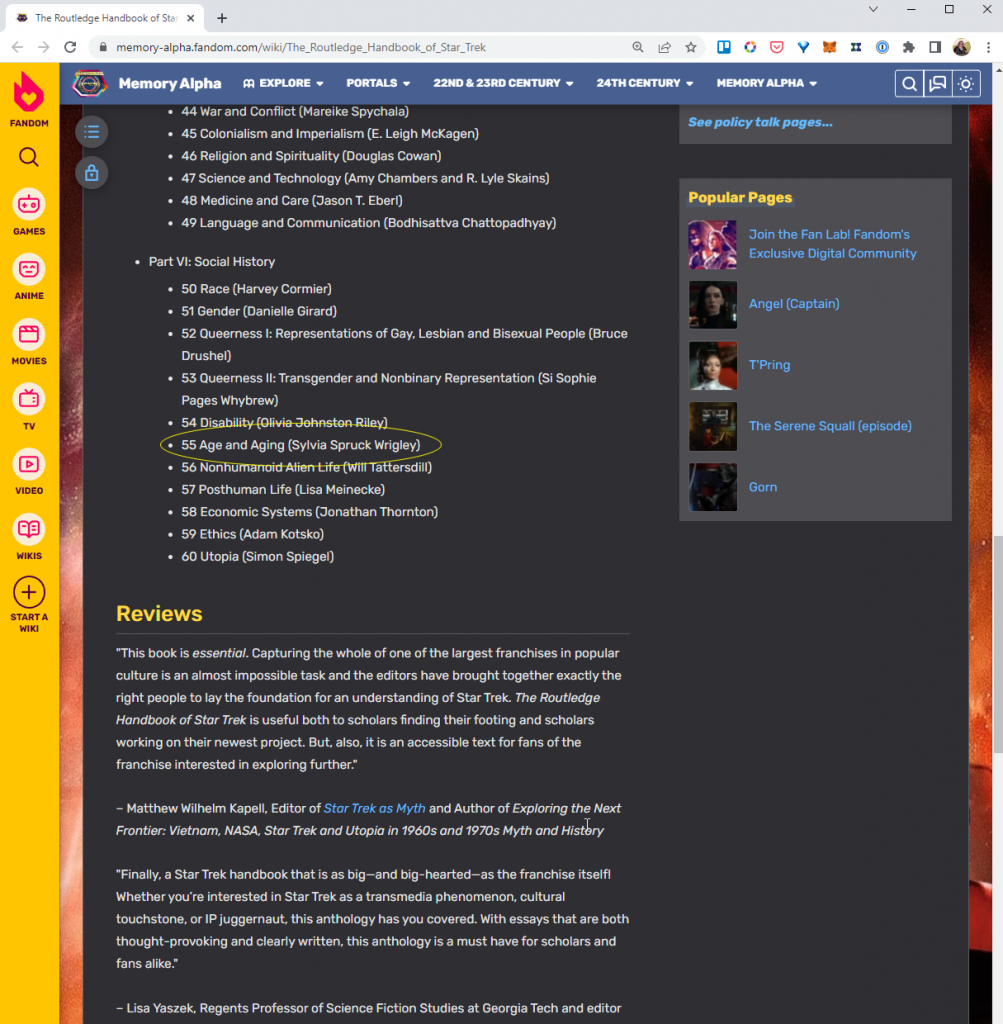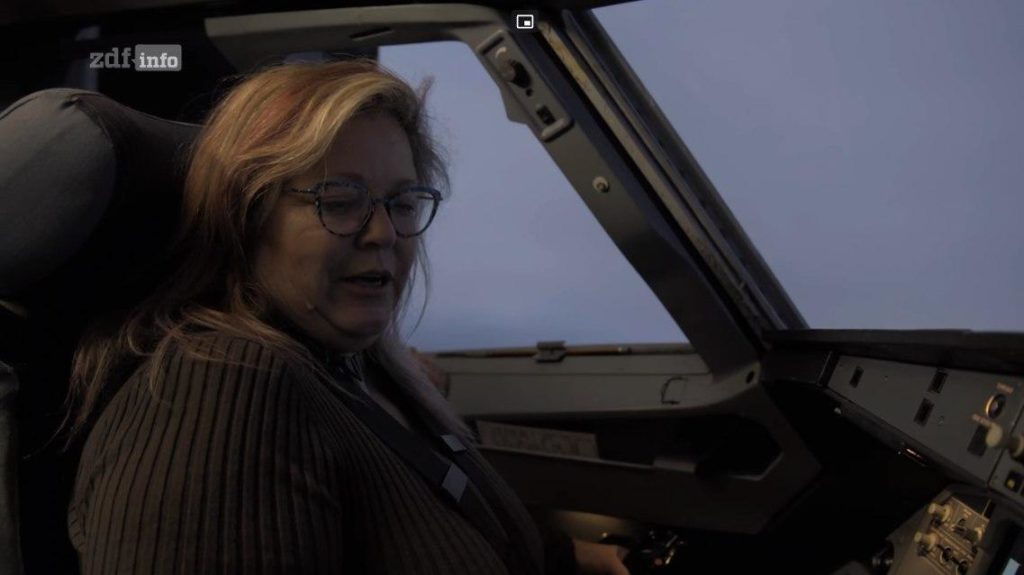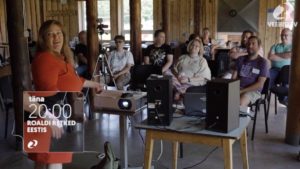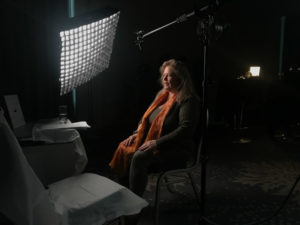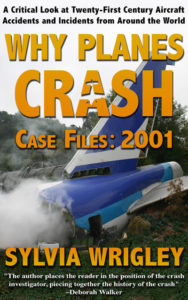I am in Tartu! I’m attending Transitions, the 2024 annual conference of the Science Fiction Research Association. Tartu is also hosting Futures Better and Worse as a part of the Tartu Internationa Literary Festival, so it promises to be an action-packed week.
My presentation will be on Friday, the 10th of May at 15:30.
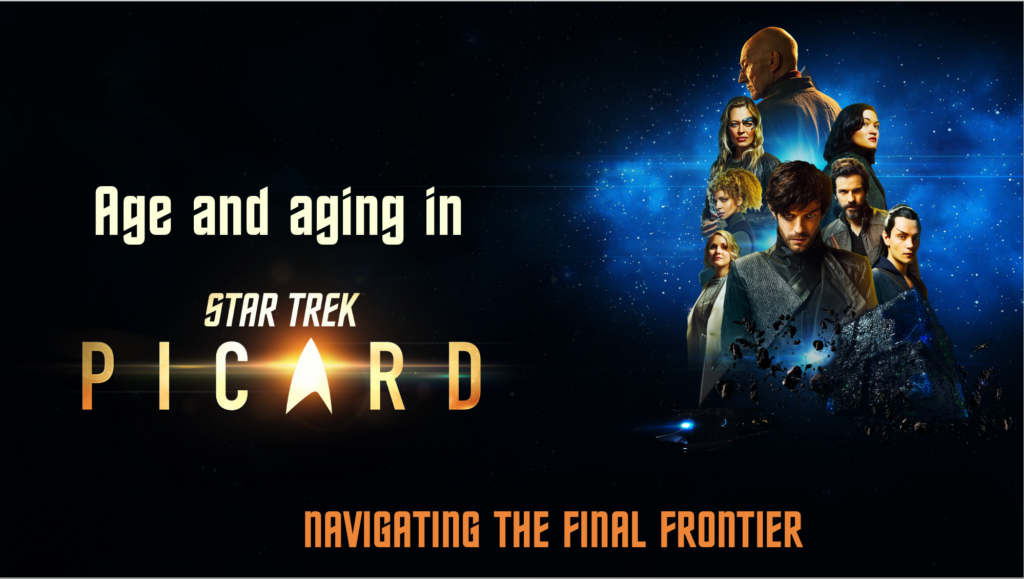
Navigating the Final Frontier: The Journey into Old Age in ‘Star Trek: Picard’
This paper explores themes of leadership, legacy, and the human aging process in ‘Star Trek: Picard’. Traditionally, Star Trek has suffered from persistent ageist tropes, most blatantly celebrating old age in alien races while depicting human elders as frail, emotionally unstable and unfit for leadership. ‘Star Trek: Picard’ explores human old age through the character of Jean-Luc Picard, who is forced to confront the challenges of aging: loss, regret and the need for reinvention. As he reunites with the crew of ‘The Next Generation’, the series has the opportunity to explore many facets of old age and aging across a range of personalities. This analysis focuses on the first series and whether ‘Star Trek: Picard’ promises a a more nuanced view of old age or reinforces those very stereotypes that have dogged the Star Trek universe from the beginning. The author seeks seeks to contribute a deeper understanding of how popular science fiction influences and reflects societal attitudes towards aging. ‘Star Trek: Picard’ may not have broken the barriers of ageist stereotypes, but the first series undeniably sets a course for new discussions.
If you are in Tartu this week for either of the events, please let me know; it’d be great to say hello!
